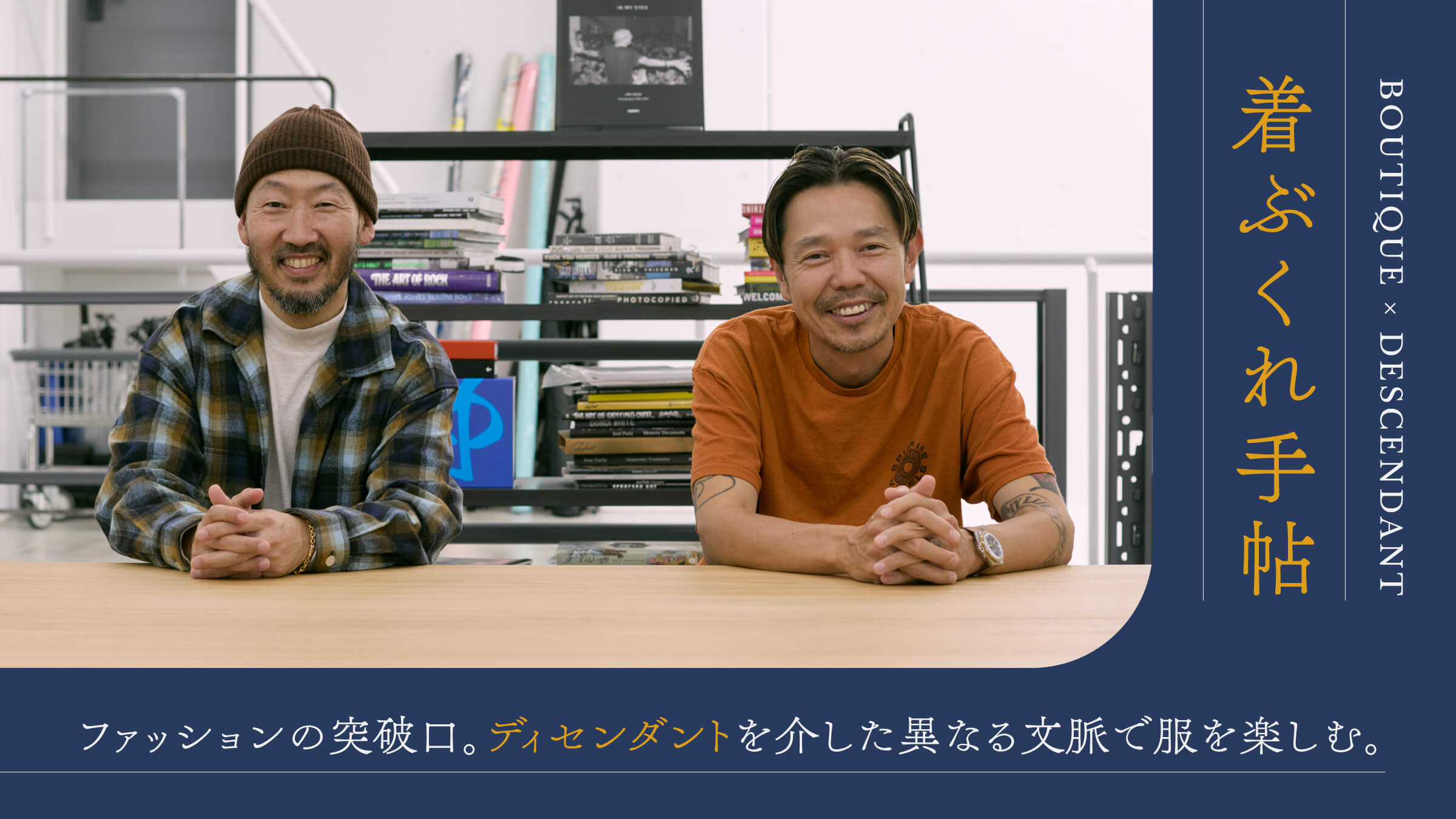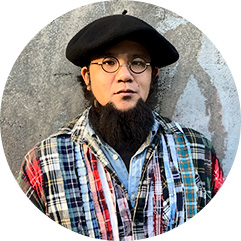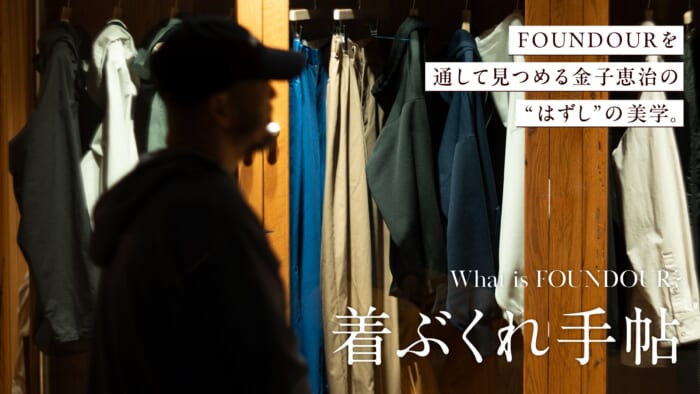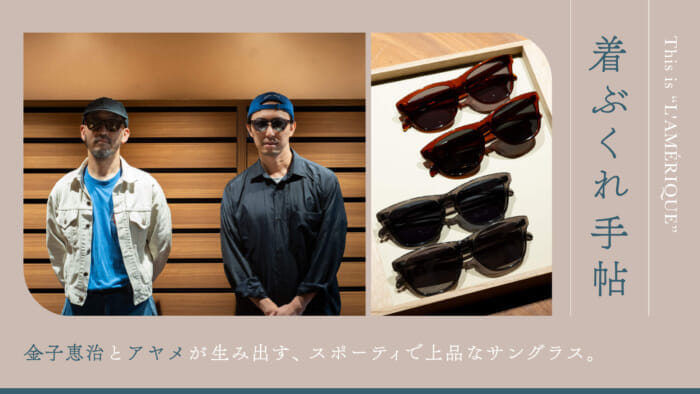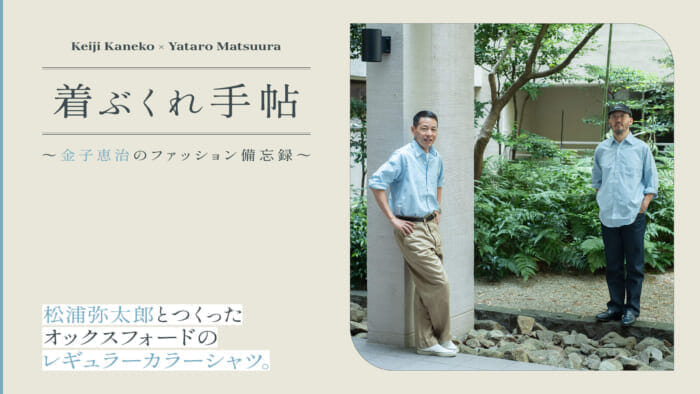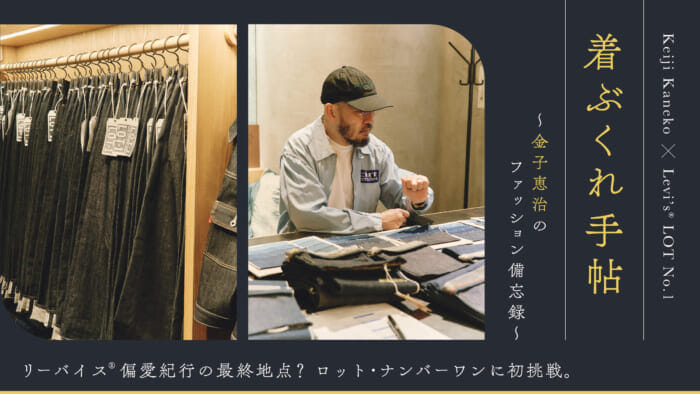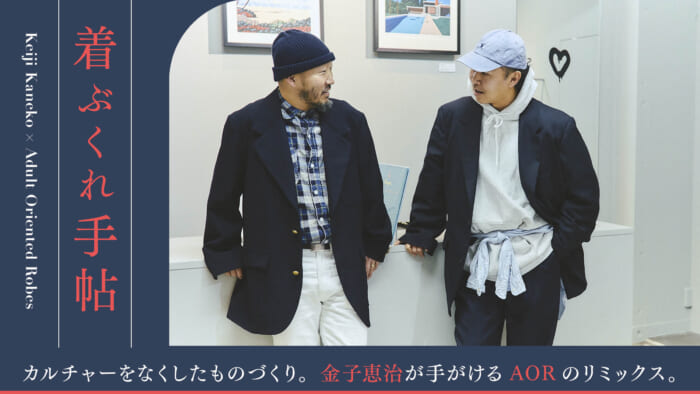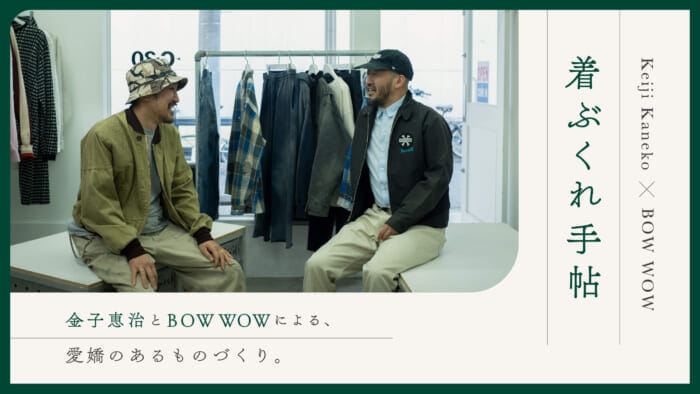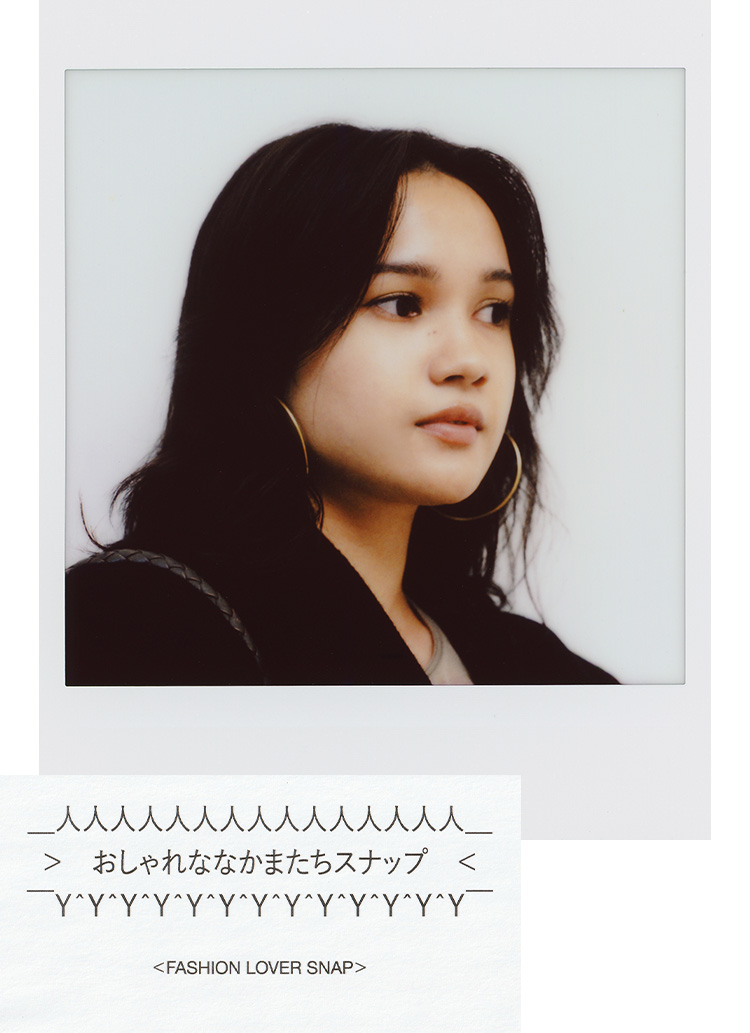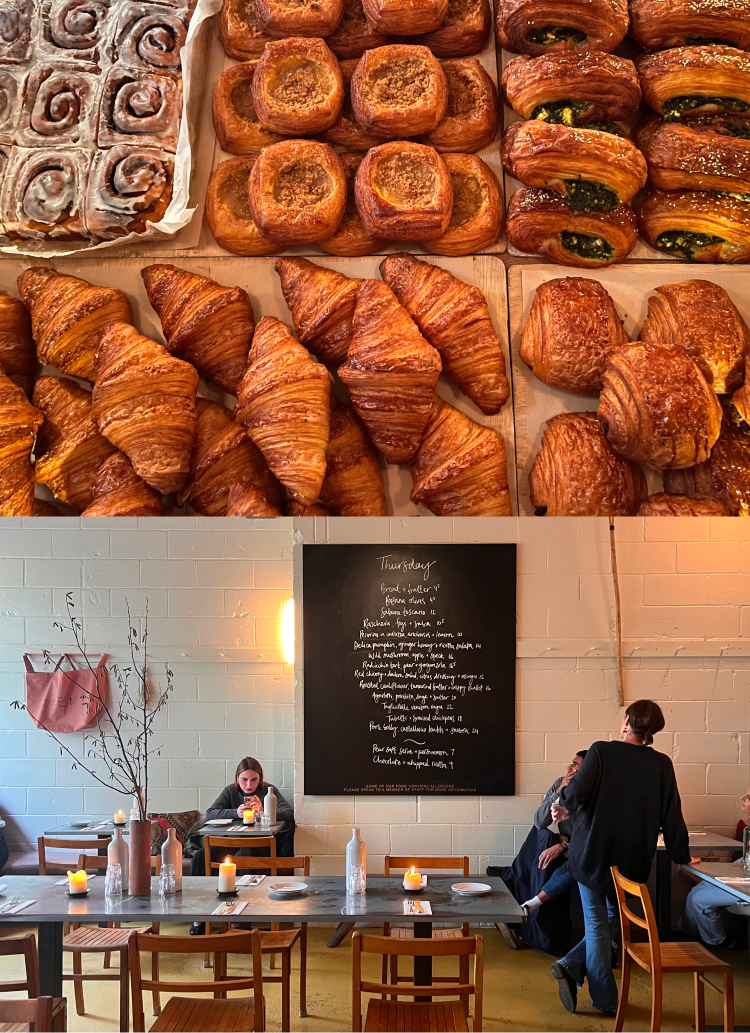Clothing is an expression of one's identity.
What kind of clothes do you find yourself drawn to when you go shopping?
Kaneko: You don't seem to shop much, do you?
Nishiyama: I really like the traditional clothes that Mr. Kaneko liked and went into. My father worked at "VAN," so I was forced to wear such clothes as a child. I didn't like it at the time, but when American "discus" sweatshirts came out, I started wearing them myself, and I gradually came to like those kinds of clothes. As I got older, I returned to those kinds of clothes, and I think that may be the reason why I have always liked traditional clothes.
Do you still buy such clothes?
Nishiyama: Yes, I do. For example, I don't really look at the T-shirt I'm wearing right now as clothing. I get them to support the skate scene or to support a brand. But most of the things I buy as clothing are orthodox like that.

Are there any particular fashions you are interested in?
Nishiyama: Hmmm...I wonder.
Kaneko: You are in trouble (laughs).
Nishiyama: As I mentioned earlier, I am not aware of fashion. I went to Paris recently for the men's fashion week and saw several shows. My daughter was with me, and I wanted to show her. After all, this is the home of fashion, isn't it? So I was able to see fashion from a different approach than when I look at it in Japan, and I was able to feel fashion as a culture. I have been there many times since I was young, but I didn't think so at the time.
Are there any shows that left a lasting impression on you?
Nishiyama: They were all amazing. They have a way of expression that is different from my own. Also, the people who support them are amazing. I strongly felt that fashion editors and people in the industry are supporting the scene. It was cool that everyone was enjoying fashion freely and expressing themselves without being restrained by anyone.
You mentioned earlier that "now that I think about it, I was drawing my own boundaries.
Nishiyama: I didn't think anything of it. However, I can understand why such feelings arise. Going back to Paris, when I bring Dissident clothes overseas, people wear them without hesitation. The context, such as who is making the clothes, becomes irrelevant. It becomes a judgment of good or bad, like or dislike. I simply think that's great.
I think that in Japan, the image of the company is often the first thing that comes to mind.
Nishiyama: I don't have any stress about it, and I have never had any trouble with it, but it is a waste of time for a brand. As for myself, I don't intend to create a gap between the two.

For example, there is a common band T-shirt controversy. What do you think about wearing T-shirts of bands you have never heard of?
Nishiyama: Thirty years ago, I might have had many thoughts about it, but now I don't care (laughs). (Laughs.) I think it is fine to wear whatever you want. But you should know that there are people who don't.
Back to Paris again, a brand I knew gave me a front row seat. So I was aware that I would be in someone's video or photo, so I thought I had my own manner of what to wear. After much consideration, I decided to wear a band T-shirt. It was an expression of my roots, where I came from. It is an identity, so to speak.
By the way, what band's T-shirt were you wearing?
Nishiyama: I think it was Minor Threat.
That's cool. For you, clothes can be seen as symbolic or tool-like objects.
Nishiyama: I think it might be. I guess it is an expression of identity. I can't really explain it well, though, because I do my brand thinking that it is fashion and not fashion.

Kaneko: Perhaps it is because of this stance that the "Dissendant" chino struck a chord with me. I am always attracted to things that are tools.
Nishiyama: Thank you very much. I am very happy.


